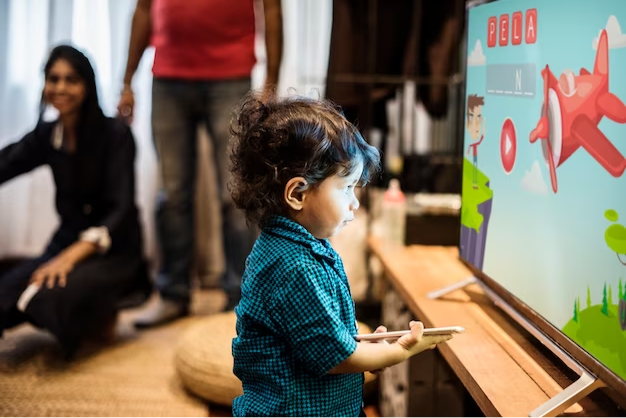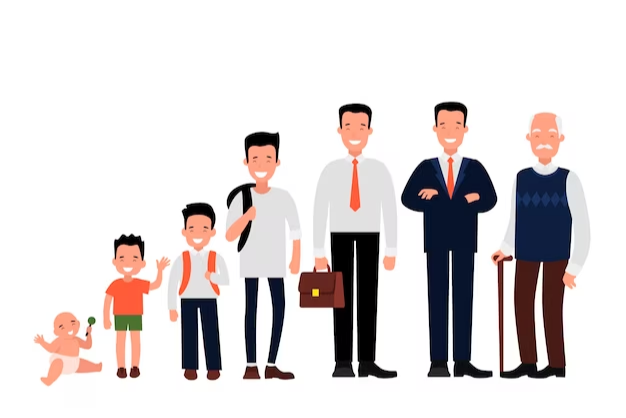
Paediatrics & Paediatrics Surgery
Striking a Balance: Navigating Screen Time for Children
December 2023
Paediatrics & Paediatrics Surgery

Every child is unique, and they develop at their own pace. However, understanding typical developmental milestones at different ages can be a valuable tool for parents and caregivers. It offers insight into what to expect as children grow and helps identify potential areas of concern. In this article, we'll explore key developmental milestones at different age ranges, from infancy through adolescence.
Infancy (0-12 months):
- Lifting their head while lying on their stomach.
- Rolling over.
- Sitting up independently.
- Crawling.
- Standing with support.
- Taking their first steps (typically around 9-12 months).
- Tracking objects with their eyes.
- Responding to their name..
- Recognizing familiar faces..
- Exploring objects by touching and mouthing them..
- Beginning to understand simple cause and effect..
- Developing attachments to primary caregivers..
- Smiling and expressing joy.
- Demonstrating separation anxiety.
- Showing interest in peers and engaging in social play.
Toddlerhood (1-3 years):
- Walking, running, and climbing.
- Using a pincer grasp for fine motor skills (holding small objects with thumb and forefinger).
- Jumping and hopping.
- Increased hand-eye coordination for drawing and stacking.
- Expanding vocabulary and starting to form sentences.
- Recognizing and identifying objects and body parts.
- Solving simple puzzles.
- Understanding basic concepts like "big" and "small."
- Expressing a range of emotions, including tantrums.
- Developing a sense of independence.
- Playing alongside other children (parallel play).
- Demonstrating empathy and attachment to caregivers.
Preschool (3-6 years):
- Increased coordination and fine motor skills.
- Dressing and undressing independently.
- Learning to use scissors and pencils.
- Developing basic self-care skills.
- Expanding vocabulary and forming more complex sentences.
- Recognizing letters and numbers.
- Counting and identifying colors and shapes.
- Following simple instructions.
- Playing cooperatively with peers.
- Demonstrating empathy and understanding the feelings of others.
- Developing a sense of gender identity.
- Building self-confidence and self-awareness.
Elementary School (6-12 years):
- Growth spurts and physical changes associated with puberty.
- Improved hand-eye coordination and athletic skills.
- Development of fine motor skills for activities like writing and drawing.
- Advanced reading and writing skills.
- Developing critical thinking and problem-solving abilities.
- Exploring various academic subjects and interests.
- Improved memory and organizational skills.
- Forming deeper friendships and social relationships.
- Developing a sense of morality and values.
- Demonstrating increased independence and self-expression.
- Coping with emotional challenges and managing stress.
Adolescence (12-18 years):
- Puberty-related physical changes, including growth spurts, sexual development, and secondary sexual characteristics.
- Developing physical fitness and athletic abilities.
- Gaining a sense of personal identity and self-image.
- Advanced critical thinking and reasoning abilities.
- Setting and working toward long-term goals.
- Exploring interests and career aspirations.
- Beginning to understand complex social and political issues.
- Developing independence from parents.
- Establishing romantic relationships.
- Navigating peer pressure and making responsible choices.
- Building a sense of identity and self-esteem.
Developmental milestones serve as general guidelines for tracking a child's progress in various domains. It's important to remember that children develop at different rates, and variation within the normal range is common. If you have concerns about your child's development, consult with a healthcare professional or a developmental specialist. Understanding developmental milestones helps caregivers provide age-appropriate support and create a nurturing environment for children to thrive.

Paediatrics & Paediatrics Surgery
December 2023

Paediatrics & Paediatrics Surgery
December 2023